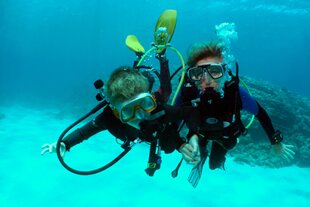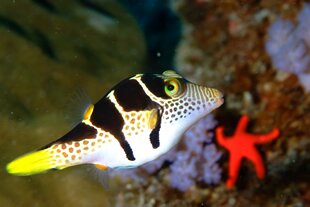| 1. |
To learn with a qualified instructor (scuba diving is a technical sport that cannot be improvised) and be informed of technological and advances in hyperbaric medicine. Never dive alone. As a group, the ascent of one involves that of all. |
| 2. |
Do not dive if you have a headache or if you feel uncomfortable. |
| 3. |
Do not drink alcohol or carbonated drinks before a dive. |
| 4. |
Never supply air to a diver in apnea below the surface; the air breathed will expand while ascending and the diver could face a pulmonary baro-trauma. |
| 5. |
Never exceed your limits and never self-evaluate your physical abilities or skills. |
| 6. |
Plan your dives and respect that plan (depth, time, always make sure there is at least 50 bars in the bottle after the dive session). |
| 7. |
In case of repetitive dives perform the deepest one first. |
| 8. |
Do not touch anything, nothing from the sea is to be taken. |
| 9. |
Do not do any physical exercise in the hours following the dive (no snorkelling to see the friends still diving, no jogging, or tennis!). |
| 10. |
Do not hesitate to take oxygen if the monitor tells you to do so. Symptoms of decompression accidents never disappear without treatment, they always worsen. |





